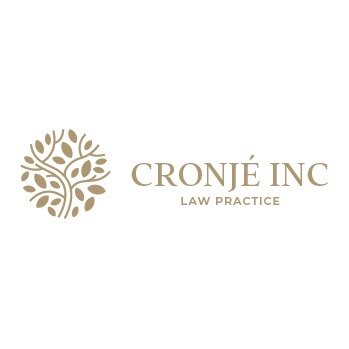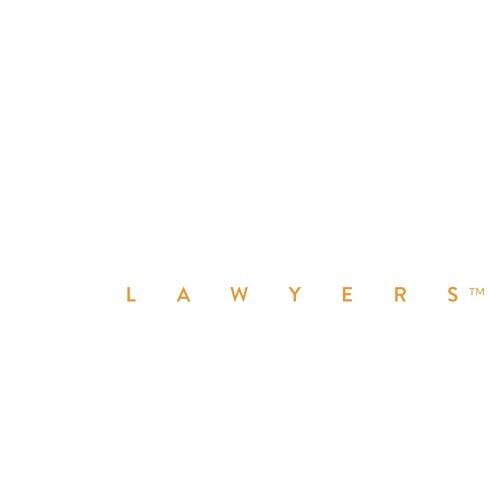Best Mining Law Lawyers in Namibia
Share your needs with us, get contacted by law firms.
Free. Takes 2 min.
Or refine your search by selecting a city:
List of the best lawyers in Namibia
About Mining Law in Namibia
Mining law in Namibia is a branch of law that governs the exploration, extraction, and management of mineral resources within the country. This legal framework establishes the rights, responsibilities, and procedures for individuals and companies involved in mining activities. Namibia is known for its abundance of minerals such as diamonds, uranium, copper, gold, and other resources, making mining a significant sector in the national economy. The Mining Law is primarily concerned with the legal processes for obtaining mining rights, environmental compliance, land access, and the regulation of commercial activities involving mineral resources.
Why You May Need a Lawyer
Engaging a lawyer is highly advisable when dealing with Mining Law in Namibia. Some common situations where legal help is required include:
- Applying for a mining or prospecting license
- Negotiating and drafting mining agreements or joint venture contracts
- Resolving land access disputes between surface landowners and mining rights holders
- Securing environmental clearance certificates and ensuring compliance with environmental regulations
- Dealing with government permits and regulatory approvals
- Managing mergers, acquisitions, or sales of mining interests
- Handling disputes regarding ownership, royalties, or transfer of mining rights
- Navigating labor and safety regulations in mining operations
- Advising foreign investors on legal requirements and local content rules
- Responding to enforcement actions or penalties from regulatory authorities
These situations can be complex and often involve significant financial and legal implications, making professional legal advice crucial.
Local Laws Overview
The primary legislation governing mining in Namibia is the Minerals (Prospecting and Mining) Act, 1992, along with relevant regulations and amendments. This Act sets out the framework for the acquisition, exercise, and transfer of mineral rights and mineral licenses. Some key aspects include:
- Licensing: Mineral exploration and prospecting require obtaining the necessary licenses from the Ministry of Mines and Energy. Licenses can range from reconnaissance, prospecting, to mining licenses.
- Ownership: All mineral resources are vested in the state of Namibia, and individuals or companies may only explore or mine minerals through government-granted rights.
- Land Access: Mining activities may take place on communal, private, or state land, but landowner consent and compensation may be required for access.
- Environmental Compliance: The Environmental Management Act, 2007, requires environmental impact assessments and clearance certificates for most mining projects.
- Local Participation: There are local content requirements, encouraging participation of Namibian citizens and entities in mining ventures.
- Taxation and Royalties: Operators must pay royalties and applicable taxes to the government based on the type and value of extracted minerals.
- Health and Safety: The Mine Health and Safety Regulations set out safety standards to protect employees and surrounding communities.
Complying with these and other regulations is essential to avoid legal sanctions and ensure the long-term viability of mining operations.
Frequently Asked Questions
What documents are required to apply for a mining license in Namibia?
Applicants typically need to provide details about the proposed project, proof of financial and technical capability, environmental clearance, and maps or surveys of the site. The exact requirements may vary based on the type of license and the area involved.
Who owns the minerals found on my land?
In Namibia, all minerals are legally owned by the state, regardless of whether they are found on private, communal, or state land. Individuals or businesses must obtain the appropriate rights or licenses from the government to explore or mine them.
Can foreign companies participate in mining activities?
Yes, foreign entities can engage in mining operations in Namibia, but they must comply with local laws and regulations, including forming joint ventures with Namibian partners in some cases and adhering to local participation requirements.
What is the role of environmental regulations in mining?
Environmental regulations are critical in mining. Before starting operations, developers must conduct environmental impact assessments and obtain an environmental clearance certificate, ensuring that their activities do not harm the environment or local communities.
How are royalties and taxes calculated?
Royalties and taxes are assessed based on the type and quantity of minerals extracted. The Ministry of Mines and Energy, along with the Ministry of Finance, set out the rates and assessment criteria. Operators are required to file regular reports and make payments as stipulated by law.
What are the key steps to resolve disputes in mining?
Many disputes are resolved through negotiation, mediation, or arbitration as set out in mining agreements or relevant laws. If alternative dispute resolution fails, parties can take legal action in Namibian courts.
Does the government have the right to revoke mining licenses?
Yes, licenses can be suspended or revoked by the government if the holder breaches the terms of the license, fails to comply with regulations, or does not fulfill reporting or financial obligations. Due process must be followed in such actions.
Are there specific rules for community engagement?
Yes, mining companies are often required to engage and consult with affected communities, especially on communal land. Community consent, benefit-sharing agreements, and compensation may be necessary depending on the project location and impact.
How long does it take to obtain a mining license?
The time frame varies depending on the completeness of the application, required assessments, and administrative procedures. It may take several months or longer, especially for larger or more complex projects.
What are the penalties for illegal mining?
Illegal mining, operating without the appropriate licenses, or failing to comply with regulations can result in significant fines, forfeiture of equipment, potential imprisonment, and prohibitions from future mining activities.
Additional Resources
If you need further information or guidance, the following resources and organizations can be helpful:
- Ministry of Mines and Energy - The primary regulator for mining activities and licensing
- Chamber of Mines of Namibia - An industry body providing information, guidance, and advocacy for mining companies
- Ministry of Environment, Forestry and Tourism - Oversees environmental assessments and compliance
- Namibia Chamber of Commerce and Industry - For business advisory services related to mining investments
- Legal practitioners - Specialized law firms with expertise in mining and natural resources law
Next Steps
If you require legal assistance in mining law, consider the following steps:
- Gather all relevant documents regarding your mining activity or interest, including agreements, correspondence, and licenses.
- Identify the specific legal challenge or question you need help with, such as licensing, environmental compliance, or a dispute.
- Contact a qualified lawyer or law firm with expertise in mining law in Namibia. Look for practitioners with a proven track record in this field.
- Request an initial consultation to discuss your situation, understand your options, and receive preliminary legal advice.
- Follow your lawyer’s guidance on preparing applications, negotiating agreements, or responding to regulatory authorities to ensure compliance with local laws.
Legal processes in mining can be intricate and often have significant financial and operational implications. Engaging experienced legal counsel early can help you safeguard your rights and interests throughout your mining venture in Namibia.
Lawzana helps you find the best lawyers and law firms in Namibia through a curated and pre-screened list of qualified legal professionals. Our platform offers rankings and detailed profiles of attorneys and law firms, allowing you to compare based on practice areas, including Mining Law, experience, and client feedback.
Each profile includes a description of the firm's areas of practice, client reviews, team members and partners, year of establishment, spoken languages, office locations, contact information, social media presence, and any published articles or resources. Most firms on our platform speak English and are experienced in both local and international legal matters.
Get a quote from top-rated law firms in Namibia — quickly, securely, and without unnecessary hassle.
Disclaimer:
The information provided on this page is for general informational purposes only and does not constitute legal advice. While we strive to ensure the accuracy and relevance of the content, legal information may change over time, and interpretations of the law can vary. You should always consult with a qualified legal professional for advice specific to your situation.
We disclaim all liability for actions taken or not taken based on the content of this page. If you believe any information is incorrect or outdated, please contact us, and we will review and update it where appropriate.
Browse mining law law firms by city in Namibia
Refine your search by selecting a city.















